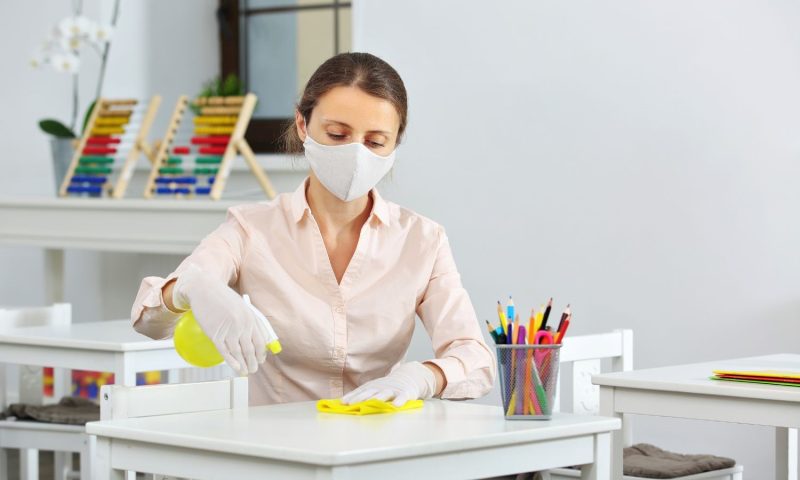Protecting kids from various health threats will help them thrive during their school days. Explore tips to prevent the spread of bacteria in schools.
In the bustling, youthful environment that is a school, maintaining a hygienic space can seem impossible. The health and success of students are at stake because common illnesses, such as colds or stomach viruses, can quickly spread without proper prevention. Read on to learn five practical tips for preventing the spread of harmful bacteria in schools.
Regularly Cleaning and Disinfecting Surfaces
Commonly touched surfaces such as doorknobs, desks, computers and playground equipment are breeding grounds for different types of bacteria. Routine cleaning and disinfecting of these areas, especially during flu seasons, can significantly reduce the spread. Establish a schedule for sanitizing these hotspots and stick to it.
Encourage Sick Students To Stay at Home
While attendance is essential for positive development, kids should never compromise their health. Encourage students showing signs of illness to stay home so that they can prevent the spread of bacteria and heal quickly. Parents and teachers should collaborate to make this possible without impacting the student’s academic performance.
Teach and Enforce Good Hand Hygiene
Encourage students to wash their hands for at least 20 seconds, particularly before meals and after using the restroom. Norovirus is challenging for kids, and it’s especially challenging for schools because it can quickly spread and affect large groups, which is why it’s important to have proper hygiene. Facilitate good hand hygiene among students and staff by ensuring soap and sanitizers are available throughout the school.
Having Proper Vaccinations
Immunizations are the simplest and most effective way to prevent the spread of viruses and bacteria in schools. These vaccinations provide a line of defense against several harmful diseases for long periods, minimizing diseases and health problems. Organizing regular vaccination drives will ensure that all students are up-to-date with their immunizations.
Promote Healthy Eating and Regular Exercise
A strong immune system is a powerful defense against bacterial infections because it offers constant and reliable protection. Encouraging students to eat balanced meals and engage in regular physical activity can help boost their immunity, making them less susceptible to infections. Exercising for at least 30 minutes daily and drinking plenty of water will make a positive difference.
With these tips, schools can proactively prevent bacterial spread, creating a safer, healthier learning environment for all students. Students will achieve better results and development when the circumstances are favorable and steady.
